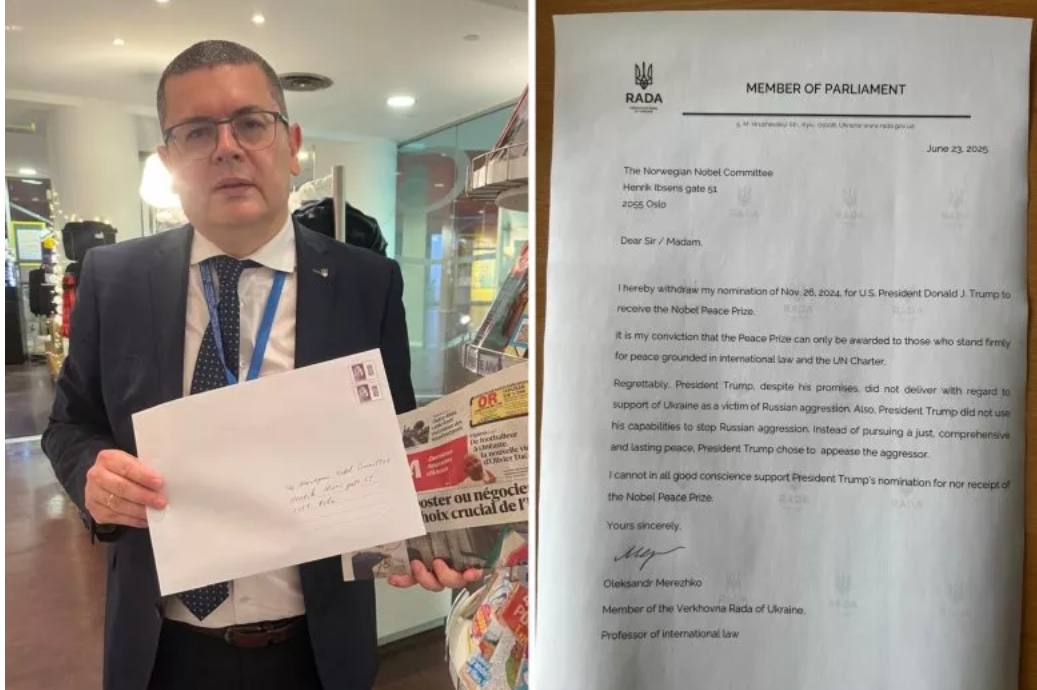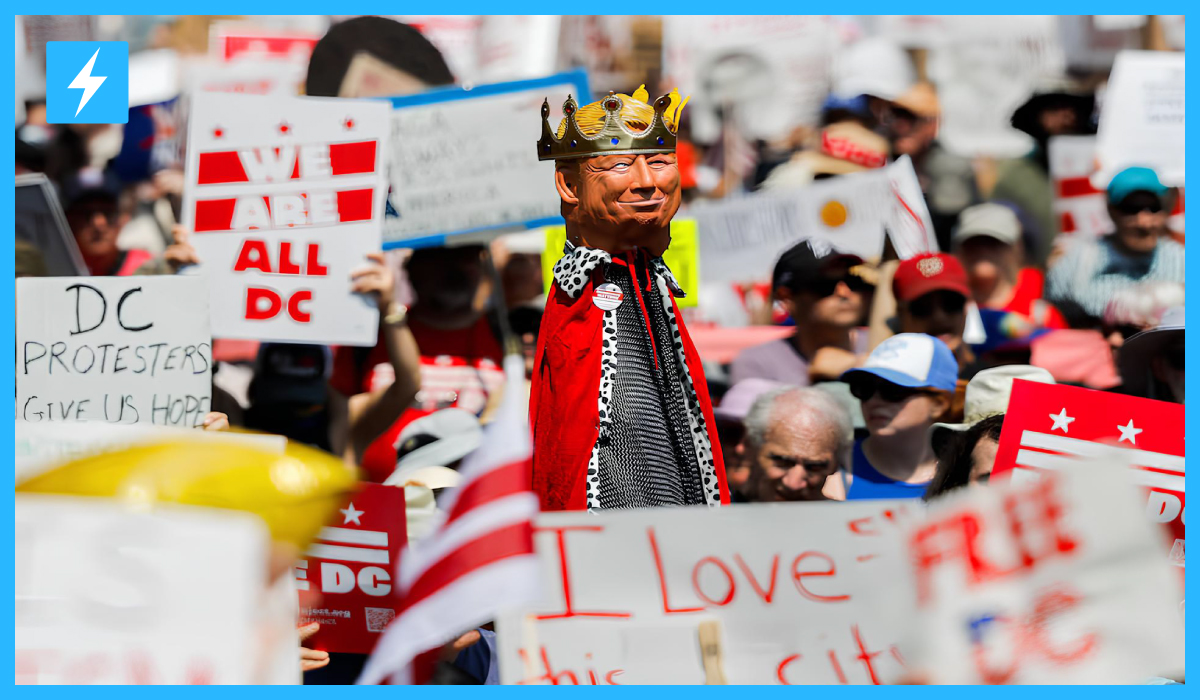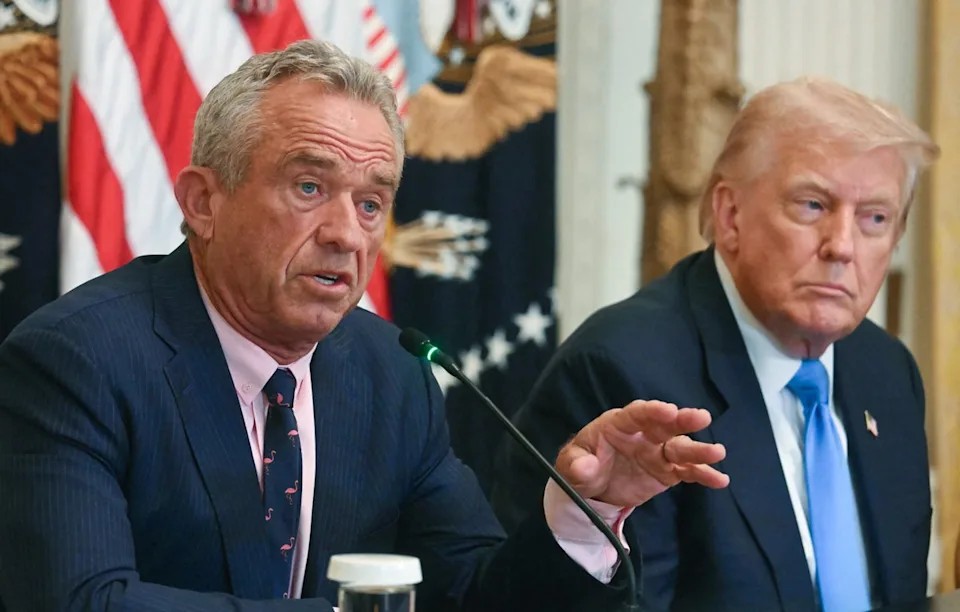”Trump Nobel Peace Prize nomination withdrawal: what caused it”
A significant political pivot occurred this week as Oleksandr Merezhko—chair of Ukraine’s parliamentary foreign policy committee—formally withdrew his November nomination of Donald Trump for a Nobel Peace Prize, citing a “lost faith” in Trump’s ability to secure a Russia‑Ukraine ceasefire
Merezhko said he had “lost any sort of faith and belief” in Trump’s capacity to broker peace between Moscow and Kyiv He criticized Trump’s lack of punitive measures toward Russia—particularly, that he is “dodging the need to impose sanctions”—and labeled him as having chosen “the path of appeasement”
“Why Merezhko revoked the Nobel Peace Prize nomination”
Key reasons behind the withdrawal include:
- Unkept promise: Trump pledged during his second inauguration to resolve the Ukraine‑Russia war in 24 hours. Months later, no official ceasefire was secured
- Stalled U.S.–led peace framework: Ukraine endorsed a U.S. draft in March, but Russia hasn’t signed on. Still, Trump has shown reluctance to push sanctions.
- Inaction on missile strikes: Merezhko highlighted Trump’s “virtually no reaction” to major Russian strikes in Kyiv and his opposition to sanctioning Moscow
- Shift in focus: Trump’s pivot toward Middle East diplomacy—particularly Iran‑Israel tensions—left Ukrainian peace hopes sidelined
Merezhko declared that without serious action in Ukraine, Fox-style peace gestures ring hollow.
“Trump Nobel Peace Prize nomination withdrawal amid Middle East diplomacy surge”
On the same day Merezhko reversed his nomination, U.S. Rep. Buddy Carter (R‑Ga.) stepped forward to nominate Trump anew, this time for helping broker a ceasefire between Iran and Israel that began June 23 and was labeled the “12‑Day War”
“What sparked the Iran‑Israel ceasefire”
- The conflict escalated after Israel pre-emptively struck Iranian nuclear facilities, triggering a tit-for-tat missile exchange starting June 13
- The U.S. then joined, targeting three Iranian nuclear sites on June 22—an operation reportedly delaying Iran’s program by several months.
- On June 23, at 6:02 p.m. EDT, Trump declared a ceasefire would take effect by June 25, jumping into the regional diplomatic fray—an unprecedented move .
- Despite initial violations, Israeli and Iranian leaders later agreed to the ceasefire, largely due to U.S. and Qatari pressure .
“New Trump Nobel Peace Prize nomination for Iran‑Israel ceasefire”
Rep. Carter’s new nomination, submitted June 24, emphasizes Trump’s “extraordinary and historic role” in ending the conflict and halting Iran’s nuclear ambitions .
His nomination highlights Trump’s impact through:
- “Preventing the world’s largest state sponsor of terrorism from obtaining the most lethal weapon on the planet,” referencing both the strike and ceasefire initiative .
- Emphasizing ideals of peace, war prevention, and global harmony in line with Nobel criteria .
Trump himself is publicly skeptical about receiving the prize, noting last week that he doesn’t expect to win “no matter what I do” . He cited his peace efforts—from the Abraham Accords to ending conflicts in Rwanda-Congo, India‑Pakistan, and Serbia‑Kosovo—as overlooked cases.
“Mixed international responses to Trump Nobel move“
Support and skepticism in Pakistan and Israel
- Pakistan announced its own intention to nominate Trump, lauding his “decisive diplomatic intervention” in India-Pakistan tensions—but backtracked after U.S. strikes on Iran indiatoday.in.
- Israeli officials—including Ambassador Danny Danon—praised Trump’s leadership, declaring he “deserves” consideration news.com.au+1indiatoday.in+1.
Uproar in Pakistan
Strong backlash emerged in Pakistan:
“Trump has blood on his hands,” said protesters in Karachi.
“Trump has supported the Israeli attacks on Palestine, Syria, Lebanon and Iran… How can this be a sign of peace?” remarked Maulana Fazal‑ur‑Rehman.
Senior politicians demanded Pakistan withdraw its nomination, condemning U.S. airstrikes as violations of international law
“Comparing peace efforts: Ukraine vs Middle East”
| Region | Trump Effort | Status |
|---|---|---|
| Ukraine–Russia | Promise to end war within 24 hours; U.S. drafted ceasefire; no Russian buy-in | Nomination withdrawn ▸ Failed |
| Iran–Israel | U.S. airstrikes + Trump‑brokered ceasefire via Qatar | New nomination ▸ Fragile ceasefire in place |
Trump’s Middle East maneuvering—executed with strikes and negotiations—stands in stark contrast to his stalled efforts in Ukraine, prompting major shifts in international enthusiasm.
“What’s next for Trump Nobel peace prospects”
- Nobel Committee review: 2025 nomination pool includes 338 candidates, with Trump among them
- Ceasefire durability: Experts warn both nations have violated terms, challenging the longevity of the truce .
- Political dynamics: U.S. lawmakers like Senator Katie Britt claim there’s “no doubt” Trump will win—but tension between domestic politics and global diplomacy persists.
- Oil‑price repercussions: Potential disruptions from Iran‑Israel tensions could raise oil prices—benefiting Russia and affecting Ukraine.
- Geopolitical ripple effects: Pakistan’s reversal and Indian rebuke highlight contrasting regional views, complicating U.S. global mediation roles.
Conclusion
The “Trump Nobel Peace Prize nomination withdrawal” saga highlights stark divides in global reaction to his diplomacy. Merezhko’s reversal reflects disillusionment with a U.S. policy perceived as favoring Russia, while the Iran‑Israel ceasefire nomination shows a diplomatic pivot to the Middle East.
Ultimately, whether Trump’s actions warrant a Nobel Peace Prize hinges on two major questions:
- Will the Iran‑Israel ceasefire hold—and will U.S. diplomatic follow-through sustain it?
- Does the Nobel Committee value real-time conflict resolution over partial, fragile successes?
As 2025 unfolds, Trump remains a polarizing figure in global peace efforts—hailed as a “genuine peacemaker” by some and accused of “appeasement” by others. The world now watches to see whether the Nobel Peace Prize aligns with hard-won outcomes or symbolic initiatives.
Visit for more latest news WhyTrends





Can you be more specific about the content of your article? After reading it, I still have some doubts. Hope you can help me. https://accounts.binance.info/el/register-person?ref=DB40ITMB